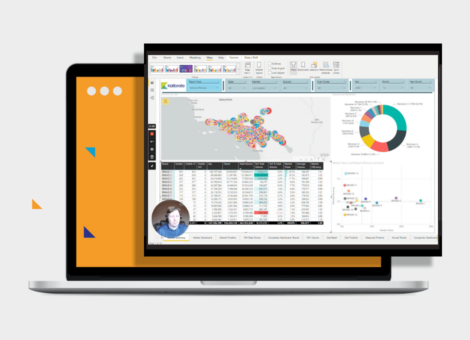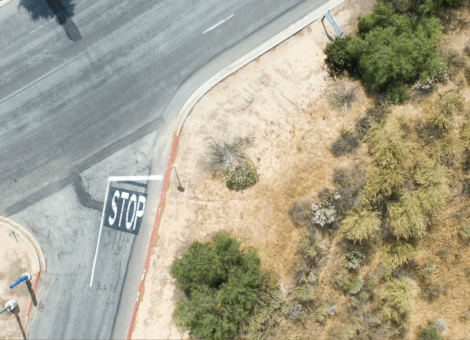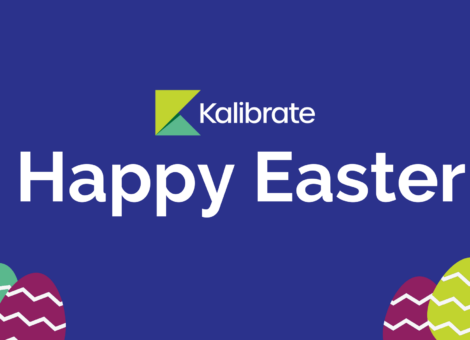Emotion, experience, and science in retail network planning
Various retail network planners will approach decisions using different rationale. One retailer might focus on their gut feeling when evaluating a network planning project. They might feel they know where the organic growth in a new market will occur best —”Emotion.” A different retailer with twenty-plus years of experience might reference the location choices that led them to success in the past when making a decision on a new market today —”Experience.” Another retailer still might choose to look at hard facts. They might use the analytical side of network planning to validate or predict the outcome of a retail decision —”Science.” What’s more, an individual strategist might actually approach decisions using a combination of all of these drivers: Emotion, experience, and science.
Let’s take a look at the strength of each:
Emotion
Emotion can influence the decision on a new location during multiple points of the selection and implementation process. For example, after a long road of choosing a location and working with real estate specialists and developers, there becomes an attachment to the success of a project. People working on that project will have an emotional motivation to get the job done. This drive, when directed at the right location, is imperative for success. However, there is a danger that even if the location isn’t the best choice for the company, the team might be too emotionally close to the project to see the potential downfalls. An objective tool could make the view of the project clearer. While emotion is important for drive, on its own, it may not deliver the most reliable decision.
Experience
Experience, certainly, has tremendous value in the retail network planning process. If you’ve been a retailer in the fuel and convenience business for a while now, then you’ve watched market trends develop and fade. That knowledge is invaluable and a huge advantage when deciding to grow or change your retail network. Perhaps you’ve identified that organic growth will be the best way for your business to move into a certain market, or you’ve watched a market like Florida grow, and you “know” that is where retail network planning efforts should be focused. Experience is a tool that is uniquely yours — and one that helps make your decisions more dependable within your business.
Science
Historically, most retailers were missing a critical scientific perspective as they navigated the network planning process. This is certainly no longer the case. Any network planning initiative should involve a well-developed planning strategy that includes a data analysis model of some kind. The key to success when bringing this perspective to the table is proving to your planning team that you have a model that is cost effective and pulls the right up-to-date industry data. Certain models can’t provide sophisticated results. Analog models, for example, may take data from individual sites and provide insight, but they aren’t able to take data from the market at large and relate them back to individual site decisions.
The standard for sophisticated models in the industry today will compile information from supply/demand, traffic data and demographics. If you are using an analog model, be careful about the data set you feed it. The accuracy of the information you glean from the model depends on the assumptions you make about the market and could be skewed due to a lack of accurate information input.
The decision-making triangle
Maturity in business teaches us that there isn’t only one way to solve problems and make the tough choices. Science matters when there’s a lot at stake in network planning. Combining emotion, science and experience to create a decision-making triangle will lead your network planning initiative toward success.
This framework provides a business tool that ensures a balanced and validated decision-making process. A team who is trained using the triangle won’t read the results blindly, but will be able to review and gain benefit from the deeper information provided about the network. If you have team members approaching the plan from experience and emotion standpoints, and these people work with others who are using strong scientific models, the information they compile together will successfully dictate the next sound action.
When planning your retail network, what do you rely on? When you want to choose a new location, what information do you trust? Your past? Your gut in the present? Your data? There exists, of course, a healthy balance of the three — naturally, finding this balance is your best bet for retail network planning success.
Read more articles about:
UncategorizedSubscribe and get the latest updates
You may unsubscribe from our mailing list at any time. To understand how and why we process your data, please see our Privacy & Cookies Policy
Related resources
Uncategorized
On-demand demo of Kalibrate Market Intelligence
For fuel retailers that want to gain market share, KMI provides granular detail on competitor performance allowing...

Location intelligence
Kalibrate Planning: hints and tips
Your monthly Kalibrate Planning hints and tips.



